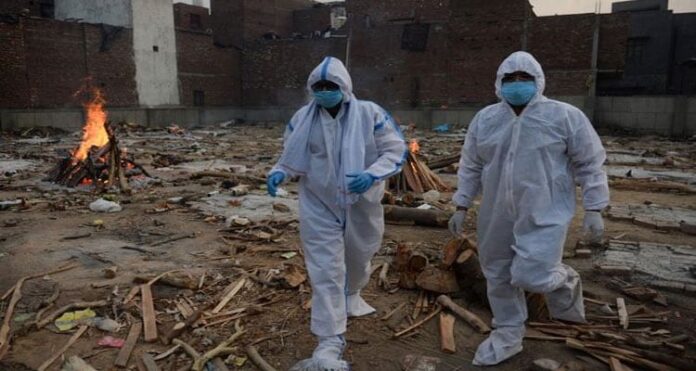| Translate This News In |
|---|
A United Nations report issued Thursday claims that an unparalleled array of problems, mainly among them COVID-19, has put human development back five years and created a global wave of anxiety. The UN Development Program (UNDP) reported that for the first time since it was formed over 30 years ago, the Human Development Index — a measure of countries’ life expectancies, educational status, and standards of living — had decreased for two years straight, in 2020 and 2021. “It implies we die sooner, we are less well educated, our earnings are going down,” UNDP chief Achim Steiner told AFP in a question and answer session.
The Human Development Index has continuously increased for decades, but began slipping in 2020 and continued its fall in 2021, wiping the gains of the prior five years, the report states.
Titled “Uncertain times, unsettled lifestyles,” the paper cites to the COVID-19 epidemic as a main cause of the global reversal, but also says that a cumulative number of problems – political, financial and climate-related – have not allowed time for communities to recuperate. The setback is genuinely worldwide, hurting more than 90 per cent of nations around the world, according to the report.
Switzerland, Norway, and Iceland all retain their spots at the top of the list, while South Sudan, Chad, and Niger are at the bottom.
While some nations had begun to recover from the epidemic, numerous others in Latin America, sub-Saharan Africa, South Asia, and the Caribbean had not yet made any progress before such a new crisis hit: the war in Ukraine.
‘Lost trust’
While the impact of Russia’s invasion of Ukraine on food and energy security has yet to be included in this year’s score, “without any doubt, the forecast for 2022 is dismal,” Steiner warned.
A key contribution to the Human Development Index’s recent reduction is a global dip in average lifespan, down from 73 years in 2019 to 71.4 years in 2021.
The report’s lead author, Pedro Conceicao, termed the fall as an “unprecedented shock,” noting that certain countries – the United States included – saw drops of two years or more.
The paper also outlines how transformational forces, such as climate change, globalization, and political division, present humanity with a complex level of uncertainty “never seen in the history of mankind,” contributing to increased sentiments of insecurity.
The report strikes an optimistic note as well, noting that improvements may be made by focusing on three main areas: investments in renewable power and preparation for upcoming pandemics, insurance to absorb shocks, and innovations to boost the capacity to cope with future crises.
Steiner also urged for a turnaround in the current falling trend of development aid to the most disadvantaged countries.


















